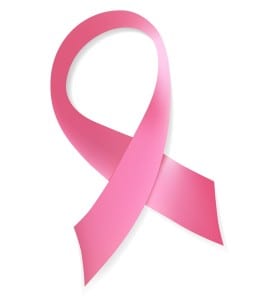Breast Cancer Diagnostic Errors Lead in Medical Malpractice Claims

Unfortunately, breast cancer is not always detected early. This is often a result of a failure to properly diagnose breast cancer. A failure to diagnose breast cancer will in turn cause enormous unnecessary harm to the patient, including wrongful death.
Breast Cancer Survival Rates by Stage
The survival rates are laid out by stage by the American Cancer Society. It does not take high-level math to understand that the survival rate drops off significantly from one stage to the next.
As a rule of thumb, the earlier the detection, the earlier the stage, the higher the survival rate. According to the American Cancer Society’s survival rate estimates, the survival rates are as follows for 4 stages of breast cancer:
- State 1 has a 5-year survival rate of 100%.
- State 2 has a 5-year survival rate of 93%.
- State 3 has a 5-year survival rate of 72%.
- State 1 has a 5-year survival rate of 22%.
It is clear that early detection has enormous consequences for survival of the breast cancer patient. Late detection has equally disastrous consequences.
Regular Screening is Essential
Regular breast cancer screening is absolutely essential. This is particularly so where certain risk factors are present.
There are numerous risk factors that will dictate the commencement and frequency of breast cancer screenings. These include the patient’s previous history of cancer, the patient’s age, the patient’s family history of cancer, obesity, and alcohol to name just a few. To see a full list of risk factors, go the American Cancer Society’s fact sheet on breast cancer risks.
Better yet, use the National Cancer Institute’s the Breast Cancer Risk Assessment Tool to assess your individual risk. This tool is not a substitute for expert medical examinations but it is very useful and may actually save your life.
Failure to Diagnose Breast Cancer
It is estimated that up to 80,000 deaths per year result from medical diagnostic errors.
This is certainly by no means all breast cancer related but in consideration of the numbers on breast cancer and the numbers on failed diagnosis, it is fairly safe to say that failure to diagnose breast cancer causes countless deaths each year and countless more permanent injuries.
It is important for patients of all stripes to protect themselves to the degree possible from the harm associated with diagnostic errors. This includes women and particularly those who exhibit any breast cancer risk factors.
This is one reason the breast cancer risk assessment tool might be important. If you are at risk, then you should make sure that the doctor and medical staff are fully aware of each and every one of your risk factors.
Whether you exhibit any of the risk factors, you should question any suspicious findings. We would like to trust our medical providers to take every precaution to protect us against diagnostic errors but the reality is we can’t. The numbers speak for themselves.
Breast Cancer Diagnostic Errors Lead the Way in Medical Malpractice Claims
In fact, the failure to properly diagnose breast cancer leads the way in medical malpractice lawsuits. They also lead the way in settlement payouts, which is a good indication of the high rate of failed diagnosis.
The medical malpractice insurance industry has found that breast cancer claims were the costliest medical malpractice claims from 2002 to 2011. Among breast cancer claims as a whole, diagnostic error was the number one complaint.
Be Proactive!
As a patient, you must be proactive in every way. First, you must take precautions to protect yourself not just against diagnostic error, but against all varieties of medical negligence—which is estimated to kill up to 440,000 patients each year.
Also, be proactive in determining your risk factors. Be proactive in questioning suspicious findings. Be proactive in insisting on testing and follow up testing where called for.
One area to be particularly proactive is in setting up and showing up for follow up appointments. Do not entirely rely on your medical professionals to remind you of the need for a follow up or a courtesy call to remind you of the date of the follow up. And do not miss follow up appointments. If you do, immediately reschedule.
In the event that you are a victim of diagnostic error, be proactive in seeking legal guidance. There are many unique, sometimes short and often unfair deadlines for medical malpractice claims. These apply equally to breast cancer cases.
Be proactive in every way with your medical care. Your health, your financial security and even your life may literally depend on it.

